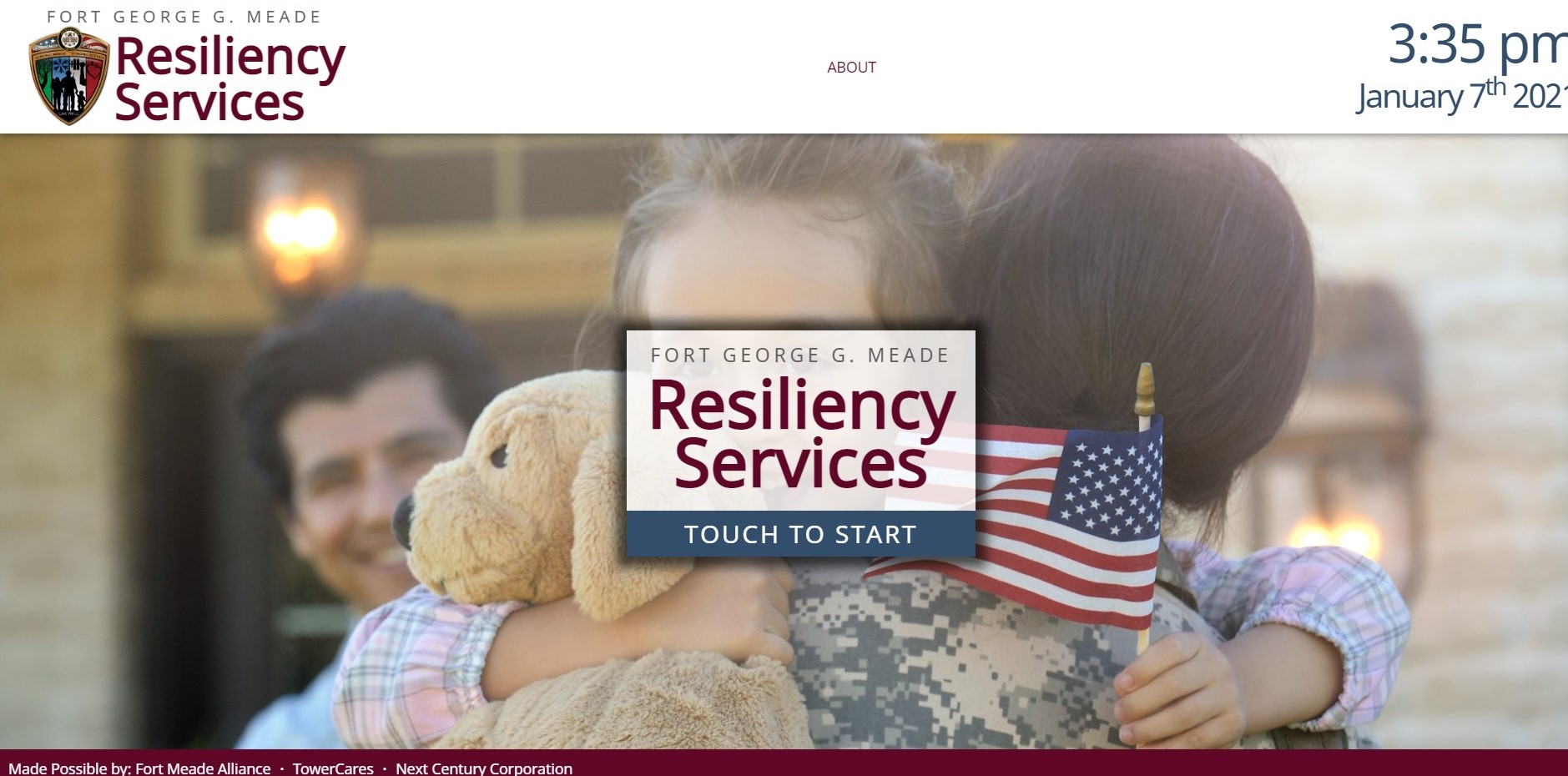By Mary Doyle, Fort Meade Public Affairs Office

FMA members Edgardo Vega of CACI and Jennifer Crockett of Kennedy Krieger Institute review the prototype of the resiliency kiosk at an FMA event in December 2019. Photo courtesy of the Fort Meade Alliance
Fort Meade Resiliency Services kiosk up and running
A unique project aimed at increasing readiness to the Fort Meade community has moved from concept to reality. The Fort Meade Resiliency Services kiosk, a one-stop way to find services associated with resiliency at Fort Meade and the surrounding community, is now up and running in a website format.
“The Resiliency Services website is a key element of our efforts to provide resiliency support to the men and women at Fort Meade,” said Doreen Harwood, Fort Meade Alliance President. “This valuable website will complement kiosks that we will distribute throughout Fort Meade.”
The kiosk concept was developed during design meetings for a renovation project funded by a gift from the Fort Meade Alliance Foundation. The $3.6M renovation of Kuhn Hall, a WWII era building, to Fort Meade’s Education and Resiliency Center, sparked wide ranging discussions to develop a diverse selection of education, support and resources provided in the center. The FMA Military & Family Committee, along with representatives from Fort Meade leadership, settled on the Resiliency Services website as a key element of the center. Placing kiosks around the installation facilitates the search for sources of help in the five areas of resiliency: family, emotional, spiritual, physical and social wellness. According to Harwood, the kiosk and website system seemed a natural complement to the physical programming happening in the buildings.
“Both resources (the website and kiosks) will connect the military personnel and their families to programs and initiatives on and off the Fort ensuring that they have the education, health and life services they need from our community,” said Harwood.
A central theme of the Education and Resiliency renovation project was to ensure the center offered a safe space for the Fort Meade community to tap into wellness and mental health experts. A range of classes and services offered in the building reduces stigma associated with mental health treatment because there is no way to tell if a person entering the space is there for that purpose versus attending a nutritional cooking class. Individuals can access the kiosk via the privacy of their own barracks, home or via the mobile site when they are on the go. With ten categories of listings that range from Behavioral Health to Recreation, Travel & Sports, the kiosk follows the Kuhn Hall model providing users the opportunity to access the supports and services they need without alerting others or outing themselves.
“The resiliency website and kiosk system is a critical extension of the Kuhn Hall mission and matches our intention to connect and support our military right here in our community,” said Deon Viergutz, Fort Meade Alliance Foundation President. “The Education and Resiliency Center at Kuhn Hall has been an incredible project for the Fort Meade Alliance, as we have worked for many years to design and plan this crucial resource for the Fort Meade community.”
The FMA Military & Family Committee collaborated with NextCentury (now CACI), the Tower Cares Foundation, Boeing and garrison leadership to develop the kiosk concept. According to the FMA, services offered on the Resiliency Services website are carefully selected to ensure they are useful and of the highest quality. Services offered will continually evolve based on user feedback. Currently, visitors to the site can find information in a wide range of areas from a living with diabetes support group to yoga for stroke patients and consumer credit counseling. Filters allow visitors to limit selections to what is offered on post, or to expand to the wide range of offerings in the community.





